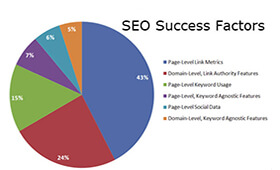
The periodic table of SEO success factors part 1
November 2, 2015
The periodic table of SEO success factors part 3
November 9, 2015Weighting Of Search Ranking Factors
All the factors we show are weighted on a scale of one to three, as shown in the top right corner of each factor, as well as reflected in the hue of that factor. A weighting of three is most important and is something you should pay special attention to because it has a bigger impact than other factors.
That doesn’t mean that factors weighted two or one aren’t important. They are. It’s just that they are of less importance, relatively speaking, in terms of the other factors on the chart. Violations are also weighted, but in negative numbers, with negative three being the worst and potentially most harmful to your SEO success.
The weighting is based on a combination of what search engines have said, surveys of the SEO community, as well as our own expertise and experience in watching the space over time. We don’t expect them to be perfect. Not everyone will agree. Your mileage may vary.
But we’re confident it is a useful general guide.
“Missing” SEO Factors & The Guide’s Philosophy
Experienced SEOs may be wondering why some factors aren’t shown. How come ALT text or bolding words aren’t included as HTML factors, for example?
The answer? We don’t think those things are as important, relatively speaking. We’re not trying to boil the ocean and encompass every possible signal (Google has over 200 of them) and sub-signals (Google has over 10,000 of those).
Instead, the goal of the Periodic Table Of SEO Success Factors and this online companion guide is to help those new to SEO focus on the big picture and perhaps allow experienced SEOs to hit the “reset” button if they’ve gotten lost staring at specific trees in the SEO forest.
That’s why this SEO guide doesn’t address having your most important keywords be at the beginning or end of an HTML title tag. Nor are we trying to assess how much more weight an H1 header tag carries than an H2 tag.
We’re purposely avoiding being ultra-specific because such things often distract and pull us down the rabbit hole. Instead, we hope you gain an understanding that pages should have descriptive titles, that indicating page structure with header tags may help, and topping things off with structured data is a good idea.
Do these things well and you’ve probably addressed 90% of the most important HTML factors.
Similarly, it’s not whether a good reputation on Twitter is worth more than on Facebook. Instead, we’re trying to help people understand that having social accounts that are reputable in general, which attract a good following and generate social shares, may ultimately help you achieve search success.
Want More Specifics About Success Factors?
We know some of you may want to drill down into specifics. In that case, the Moz Search Engine Ranking Factors survey is worth a look. Every two years, hundreds of well-regarded SEOs are asked to determine the importance of specific ranking factors. We do hope you’ll keep any specific ranking factors in the context of the fundamentals covered by our table.
In addition, many of the success factors aren’t true algorithmic factors at all. Content Research (element Cr) is a highly weighted ‘On-The-Page’ factor that describes the process of researching the words people use to find your content. Understanding your user is important to your SEO success even if it’s not a ‘ranking’ factor.
Of course, the guide you’re reading now is a great resource for understanding key SEO factors. So use the links below to continue reading through the Search Engine Land Guide to SEO.



